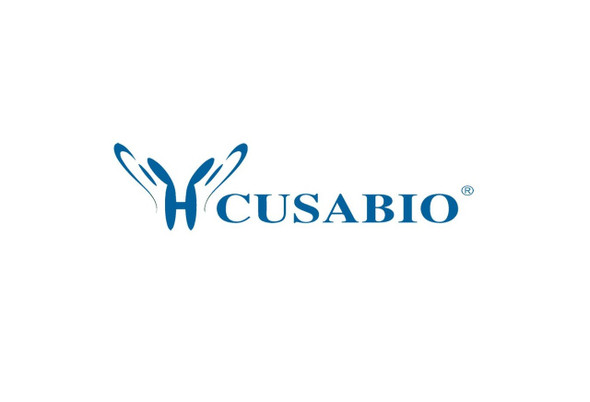Cusabio Human Recombinants
Recombinant Human Malate dehydrogenase, mitochondrial (MDH2) | CSB-EP013623HU
- SKU:
- CSB-EP013623HU
- Availability:
- 13 - 23 Working Days
Description
Recombinant Human Malate dehydrogenase, mitochondrial (MDH2) | CSB-EP013623HU | Cusabio
Alternative Name(s): M MDH; Malate dehydrogenase 2; NAD (mitochondrial); Malate dehydrogenase; Malate dehydrogenase; mitochondrial; MDH; mdh2; MDHM_HUMAN; MGC:3559; mitochondrial; Mitochondrial malate dehydrogenase 2; NAD; Mor 1; MOR1
Gene Names: MDH2
Research Areas: Signal Transduction
Organism: Homo sapiens (Human)
AA Sequence: AKVAVLGASGGIGQPLSLLLKNSPLVSRLTLYDIAHTPGVAADLSHIETKAAVKGYLGPEQLPDCLKGCDVVVIPAGVPRKPGMTRDDLFNTNATIVATLTAACAQHCPEAMICVIANPVNSTIPITAEVFKKHGVYNPNKIFGVTTLDIVRANTFVAELKGLDPARVNVPVIGGHAGKTIIPLISQCTPKVDFPQDQLTALTGRIQEAGTEVVKAKAGAGSATLSMAYAGARFVFSLVDAMNGKEGVVECSFVKSQETECTYFSTPLLLGKKGIEKNLGIGKVSSFEEKMISDAIPELKASIKKGEDFVKTLK
Source: E.coli
Tag Info: N-terminal 6xHis-SUMO-tagged
Expression Region: 25-338aa
Sequence Info: Full Length of Mature Protein
MW: 49 kDa
Purity: Greater than 90% as determined by SDS-PAGE.
Relevance:
Reference: Human homolog of mouse and pig MDH mRNA.Hu G.Complete sequencing and characterization of 21,243 full-length human cDNAs.Ota T., Suzuki Y., Nishikawa T., Otsuki T., Sugiyama T., Irie R., Wakamatsu A., Hayashi K., Sato H., Nagai K., Kimura K., Makita H., Sekine M., Obayashi M., Nishi T., Shibahara T., Tanaka T., Ishii S. , Yamamoto J., Saito K., Kawai Y., Isono Y., Nakamura Y., Nagahari K., Murakami K., Yasuda T., Iwayanagi T., Wagatsuma M., Shiratori A., Sudo H., Hosoiri T., Kaku Y., Kodaira H., Kondo H., Sugawara M., Takahashi M., Kanda K., Yokoi T., Furuya T., Kikkawa E., Omura Y., Abe K., Kamihara K., Katsuta N., Sato K., Tanikawa M., Yamazaki M., Ninomiya K., Ishibashi T., Yamashita H., Murakawa K., Fujimori K., Tanai H., Kimata M., Watanabe M., Hiraoka S., Chiba Y., Ishida S., Ono Y., Takiguchi S., Watanabe S., Yosida M., Hotuta T., Kusano J., Kanehori K., Takahashi-Fujii A., Hara H., Tanase T.-O., Nomura Y., Togiya S., Komai F., Hara R., Takeuchi K., Arita M., Imose N., Musashino K., Yuuki H., Oshima A., Sasaki N., Aotsuka S., Yoshikawa Y., Matsunawa H., Ichihara T., Shiohata N., Sano S., Moriya S., Momiyama H., Satoh N., Takami S., Terashima Y., Suzuki O., Nakagawa S., Senoh A., Mizoguchi H., Goto Y., Shimizu F., Wakebe H., Hishigaki H., Watanabe T., Sugiyama A., Takemoto M., Kawakami B., Yamazaki M., Watanabe K., Kumagai A., Itakura S., Fukuzumi Y., Fujimori Y., Komiyama M., Tashiro H., Tanigami A., Fujiwara T., Ono T., Yamada K., Fujii Y., Ozaki K., Hirao M., Ohmori Y., Kawabata A., Hikiji T., Kobatake N., Inagaki H., Ikema Y., Okamoto S., Okitani R., Kawakami T., Noguchi S., Itoh T., Shigeta K., Senba T., Matsumura K., Nakajima Y., Mizuno T., Morinaga M., Sasaki M., Togashi T., Oyama M., Hata H., Watanabe M., Komatsu T., Mizushima-Sugano J., Satoh T., Shirai Y., Takahashi Y., Nakagawa K., Okumura K., Nagase T., Nomura N., Kikuchi H., Masuho Y., Yamashita R., Nakai K., Yada T., Nakamura Y., Ohara O., Isogai T., Sugano S.Nat. Genet. 36:40-45(2004)
Storage: The shelf life is related to many factors, storage state, buffer ingredients, storage temperature and the stability of the protein itself. Generally, the shelf life of liquid form is 6 months at -20?/-80?. The shelf life of lyophilized form is 12 months at -20?/-80?.
Notes: Repeated freezing and thawing is not recommended. Store working aliquots at 4? for up to one week.
Function:
Involvement in disease: Epileptic encephalopathy, early infantile, 51 (EIEE51)
Subcellular Location: Mitochondrion matrix
Protein Families: LDH/MDH superfamily, MDH type 1 family
Tissue Specificity:
Paythway:
Form: Liquid or Lyophilized powder
Buffer: If the delivery form is liquid, the default storage buffer is Tris/PBS-based buffer, 5%-50% glycerol. If the delivery form is lyophilized powder, the buffer before lyophilization is Tris/PBS-based buffer, 6% Trehalose, pH 8.0.
Reconstitution: We recommend that this vial be briefly centrifuged prior to opening to bring the contents to the bottom. Please reconstitute protein in deionized sterile water to a concentration of 0.1-1.0 mg/mL.We recommend to add 5-50% of glycerol (final concentration) and aliquot for long-term storage at -20?/-80?. Our default final concentration of glycerol is 50%. Customers could use it as reference.
Uniprot ID: P40926
HGNC Database Link: HGNC
UniGene Database Link: UniGene
KEGG Database Link: KEGG
STRING Database Link: STRING
OMIM Database Link: OMIM









